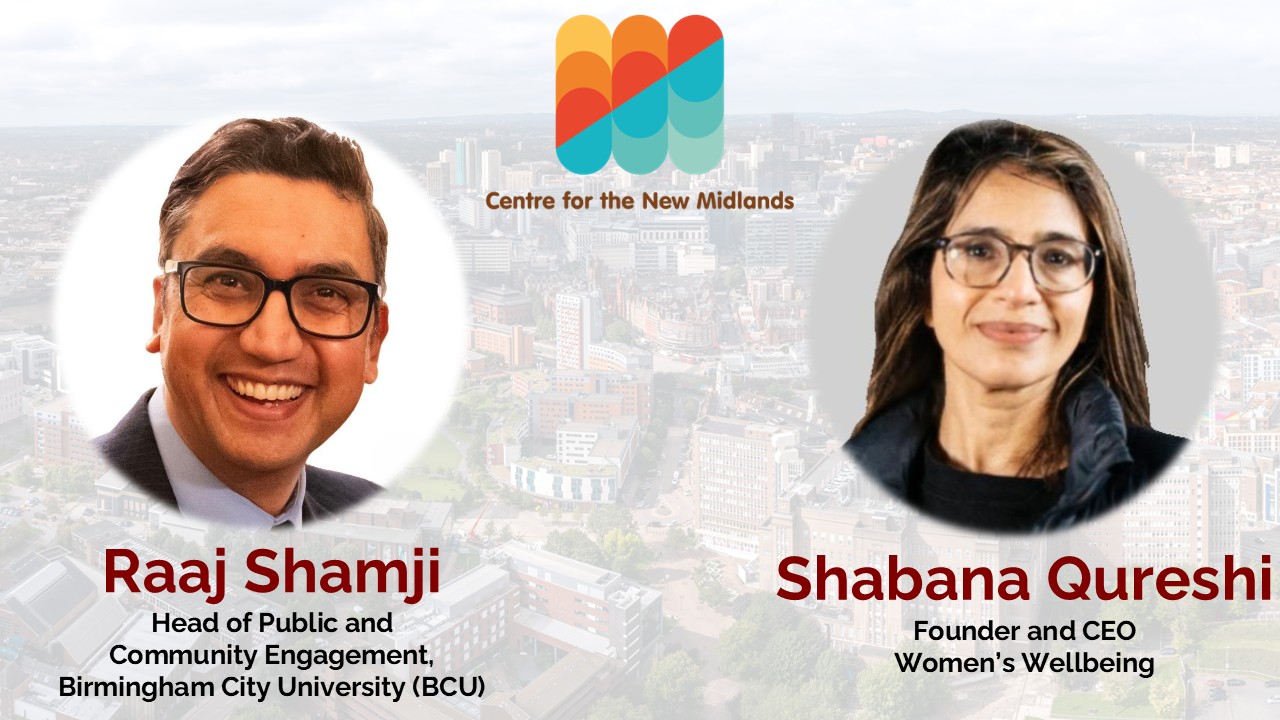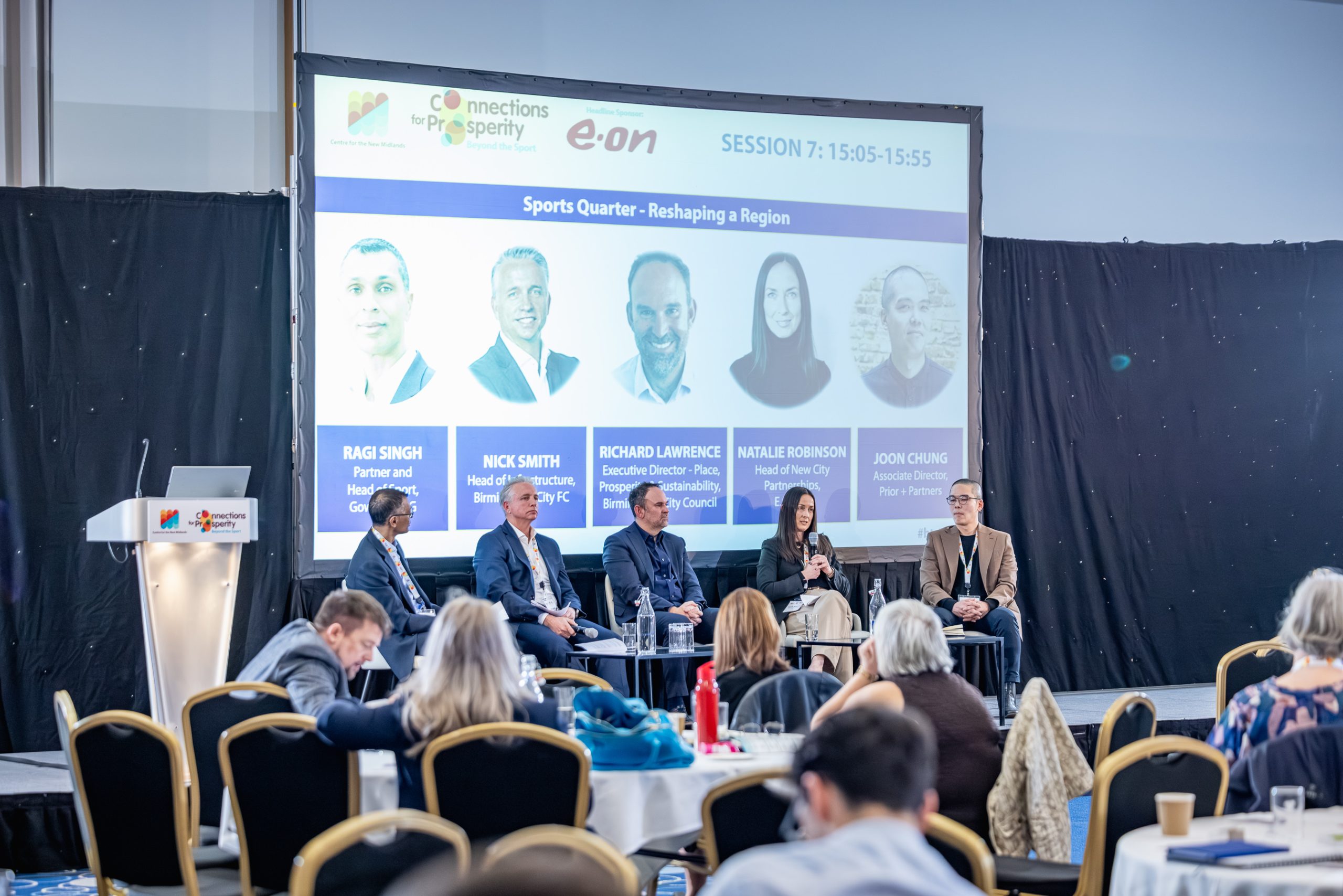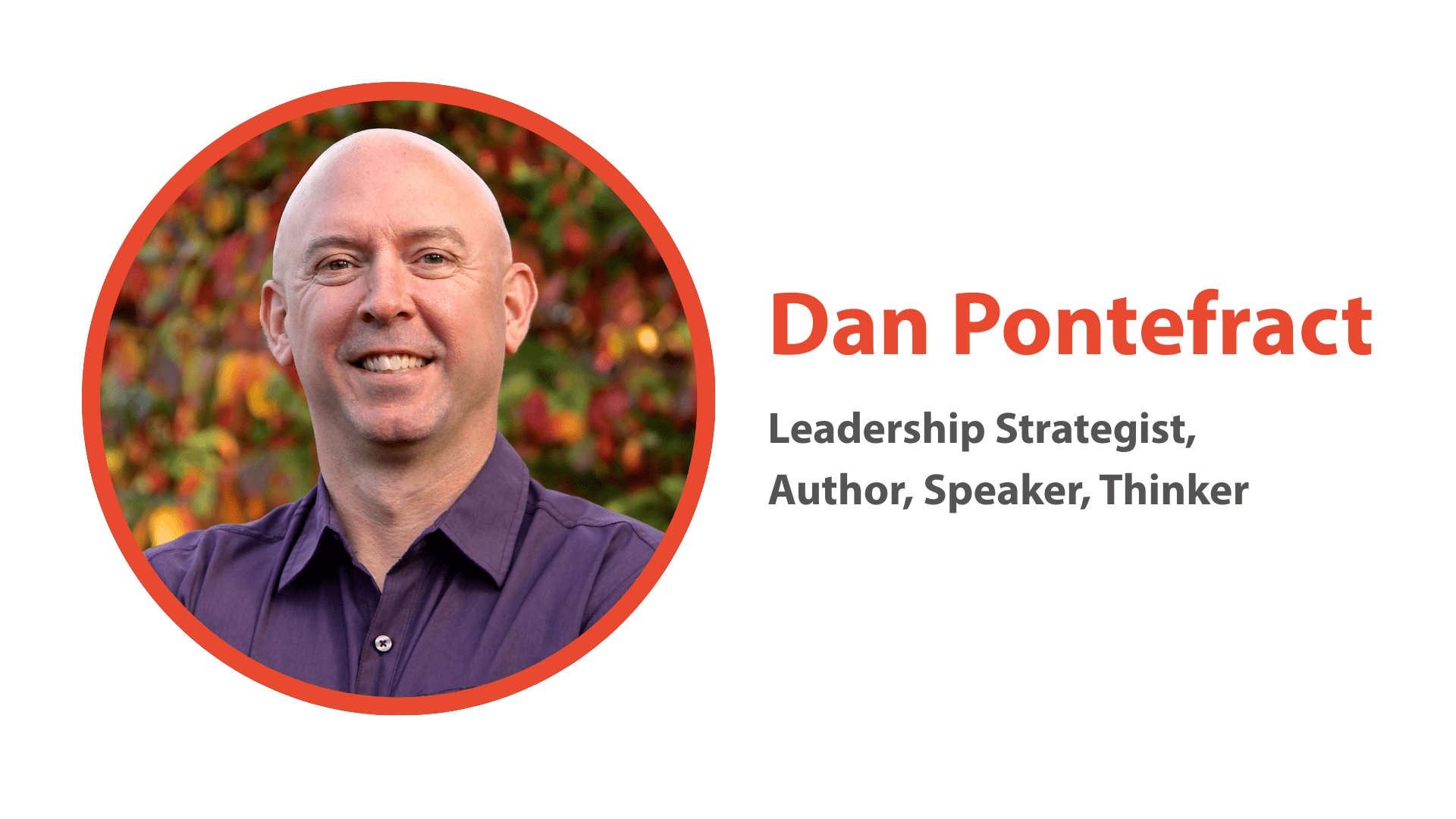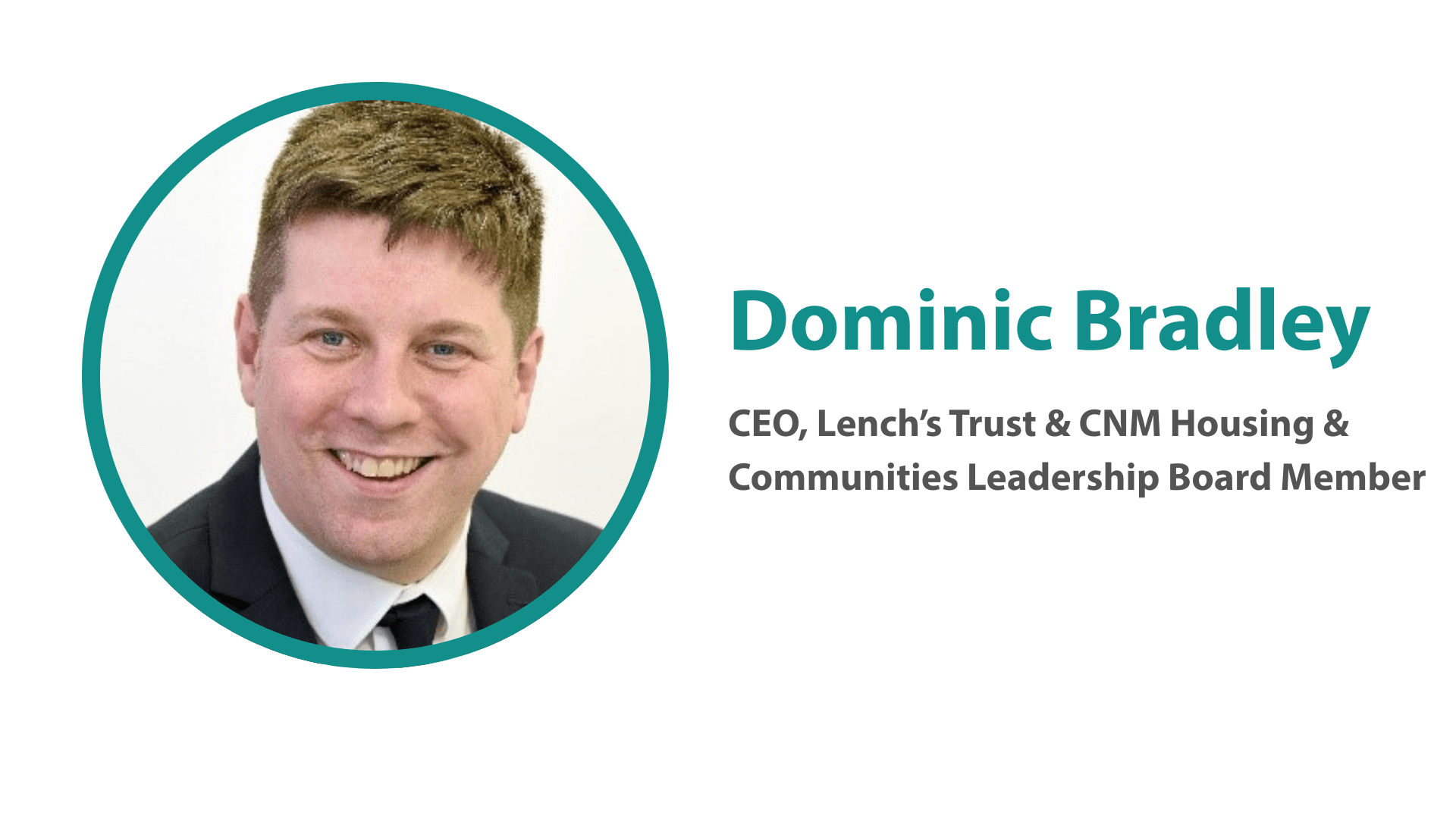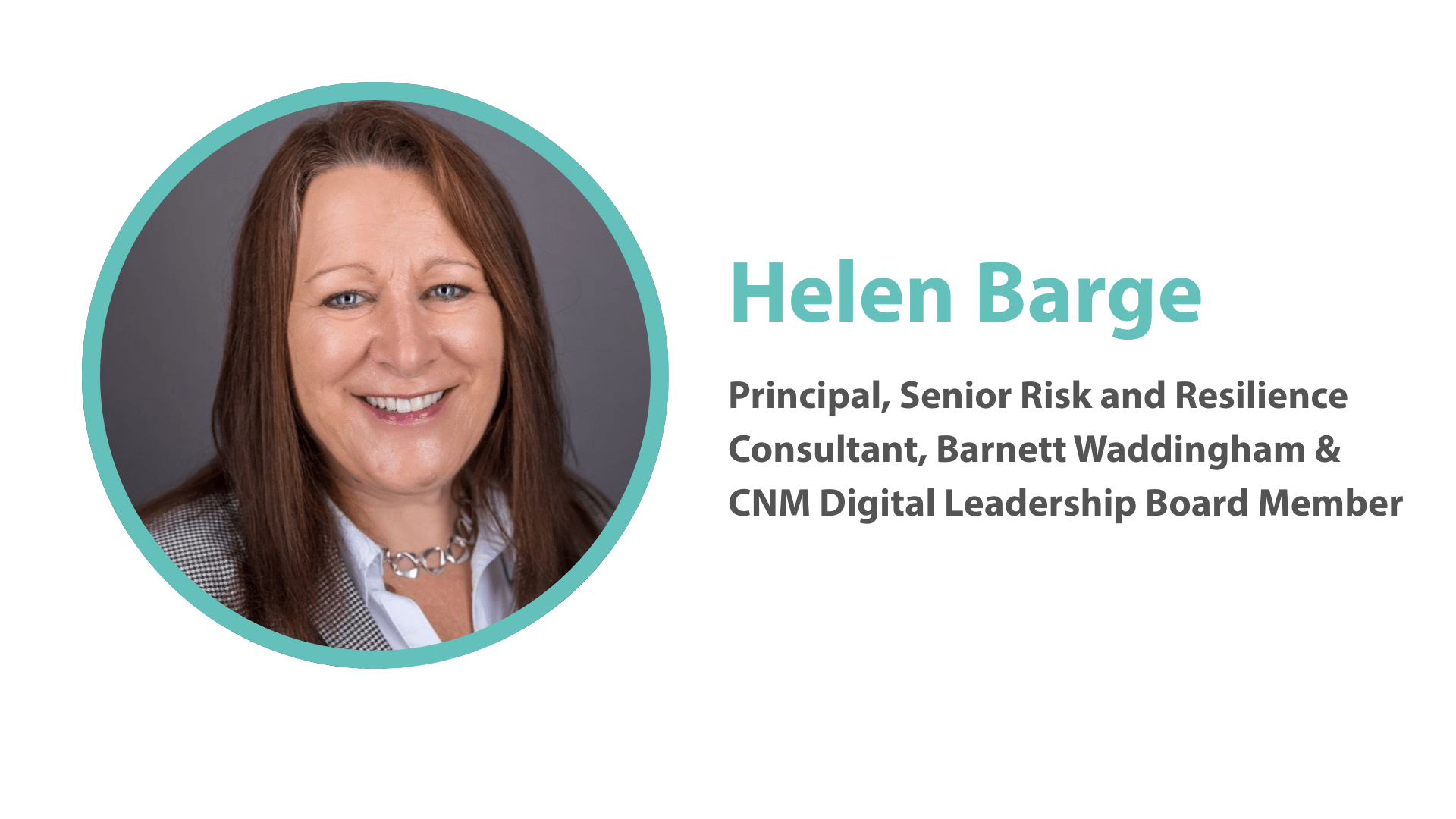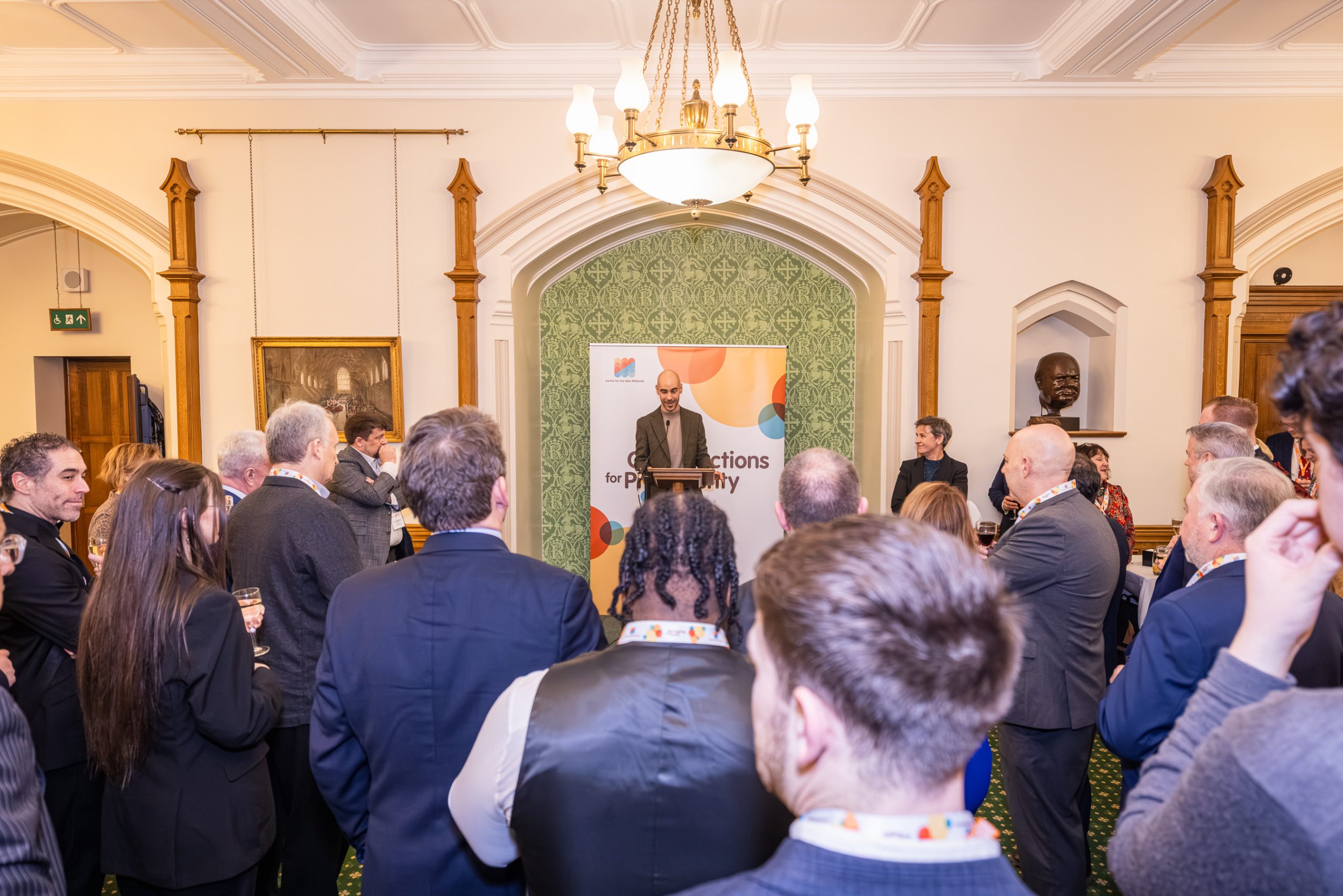The regeneration of East Birmingham is one of the key priorities for the West Midlands.
In this article, we hear from Raaj Shamji (Head of Public and Community Engagement at Birmingham City University) who shares how the university is supporting key local changemakers such as Shabana Qureshi (Founder and CEO, Women’s Wellbeing) who are helping to shape a ‘better’ region.
(July 2025)
In East Birmingham, inequality is not theoretical. It’s lived daily. It’s in the frustration of women unable to book GP appointments online, in the silence of those locked out of digital services, and in the quiet ambition of people who want to work but don’t know where to start.
But East Birmingham is more than its challenges. It’s home to resilience, talent, and leadership rooted in the community itself. Organisations like Women’s Wellbeing, led by Shabana Qureshi, are showing what’s possible when trust, talent, and tenacity are cultivated from the ground up.
At BCU, our Community Ambassador programme backs local leaders like Shabana who are already doing the work. As a BCU Community Ambassador and Founder of Women’s Wellbeing, she doesn’t just deliver services. She transforms lives.
Digital Exclusion is a Modern Inequality
Digital exclusion is now a defining social justice issue. The West Midlands has the UK’s highest rate of offline residents, with 22% not using the internet at all.¹ As more essential services go online, from healthcare to education, the gap only widens.
Currently funded by West Midlands Combined Authority (WMCA), Women’s Wellbeing launched the Digital Pathways and Wellbeing Programme, designed to empower digitally excluded women in East Birmingham. Over 200 participants joined, most facing a triple barrier:
- long-term unemployment
- low English literacy
- and chronic health issues.
Many had never used email, had no devices at home, and relied on others for tasks like booking GP appointments or accessing school updates.
For these women, digital exclusion wasn’t about lacking gadgets. It was a barrier to dignity, independence, and opportunity.
That’s why the programme focused on how it taught, not just what it taught. Sessions took place in trusted spaces such as schools, health centres, and community hubs. Bilingual support, visual aids, and tailored resources ensured no one was left behind. The learning was as much about rebuilding confidence as it was about using technology.
What Happens When the Right People Lead
The results have been transformative. Over 60 women now use the NHS app to manage their prescriptions and appointments independently. More than 30 have moved into further education, many for the first time. With partners like the National Databank and Good Things Foundation, 90 free SIM cards have been distributed to tackle data poverty.
You may think these numbers are small, but they represent something big on what locally focused, community-led groups can achieve with modest resources. This is a small organisation on the rise, rooted in place and rich in trust.
This isn’t just about empowerment. It’s about untapped potential. In the West Midlands, 56% of people lack the digital skills needed for work.² This contributes to thousands of unfilled vacancies. By unlocking digital confidence, Women’s Wellbeing is unlocking local talent.
But perhaps most powerfully, the programme has sparked a ripple effect. Women are volunteering, supporting others, and even becoming Digital Ambassadors. They are sharing what they’ve learned in their own languages, on their own terms.
One woman in her 50s, widowed and isolated for years, joined the programme hesitantly. By the end, she was independently booking GP appointments and learning English online. Her story isn’t unique. It’s what happens when support is shaped with communities, not imposed on them.
From Service Delivery to Civic Leadership
Too often, regeneration projects in places like East Birmingham are designed from a distance and delivered through short-term schemes. When the funding ends, so does the impact. The Women’s Wellbeing approach offers a different model, place-based leadership that builds long-term capability, not dependency.
This is what BCU’s Community Ambassador model champions. We invest in leaders like Shabana, not just in projects. We mentor, co-create, and integrate their work into our civic mission. It’s not token partnership. It’s a genuine power shift where she gets the opportunity to work with the students that live in East Birmingham to deliver her sessions.
As Shabana says:, “Digital exclusion is not just about skills. It’s about confidence, language, mobility, and legacy. Our women don’t want handouts. They want access. They want to contribute. This is their home, and they deserve to thrive in it.”
A Model for Legacy
This local transformation aligns with a broader regional mission. The WMCA’s Digital Roadmap 2024–2027 acknowledges that 46% of the population are non or limited users of the internet, highlighting significant levels of digital poverty and exclusion.³
WMCA has invested millions to distribute digital devices and fund community organisations that deliver digital access and skills. Women’s Wellbeing’s success reflects the power of this approach. Where funding meets local trust, real change happens!⁴
The WMCA’s own research shows that 46% of residents are non or limited internet users. Models like Women’s Wellbeing offer scalable, grassroots solutions that policymakers can build upon, rather than replace.³
This work directly supports BCU’s 2030 Strategy, especially our commitment to Power Prosperity and that talent doesn’t just sit in classrooms. It lives in community kitchens, at school gates, and in care homes. It looks like a mother sending her first email, a carer returning to work, or a widow reclaiming her confidence online.
Shabana’s leadership isn’t just about digital inclusion. It’s about shifting who gets to lead change. It’s about ensuring women in East Birmingham don’t wait for permission or outside help. They become the help, the innovators, the changemakers.
This isn’t the end of a project. It’s the start of a movement. One that centres women, redefines leadership, and builds the future from the ground up. At BCU, we’re proud to stand with Shabana and Women’s Wellbeing to help make that future real.
References
- Ofcom (2023). Adults’ Media Use and Attitudes Report 2023. https://www.ofcom.org.uk/__data/assets/pdf_file/0022/255420/adults-media-use-and-attitudes-report-2023.pdf
- Lloyds Bank (2023). UK Essential Digital Skills Benchmark. https://www.lloydsbank.com/assets/media/pdfs/banking_with_us/whats-happening/210616-lloyds-consumer-digital-index-2023.pdf
- West Midlands Combined Authority (2023). Reboot for West Midlands digital plan. https://www.wmca.org.uk/news/reboot-for-west-midlands-digital-plan/
- West Midlands Combined Authority. Digital Divide Grants. https://www.wmca.org.uk/what-we-do/employment-and-skills/digital-divide-grants/
ABOUT OUR AUTHORS:
Raaj Shamji is Head of Public and Community Engagement at Birmingham City University, where he leads efforts to align civic engagement with the university’s mission. He leads the Community Ambassador programme and is passionate about place-based leadership and social innovation.
Shabana Qureshi is Founder and CEO of Women’s Wellbeing, a grassroots organisation in East Birmingham dedicated to empowering women through health, education, and digital inclusion. She is a BCU Community Ambassador.


